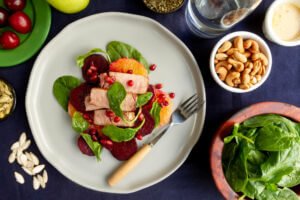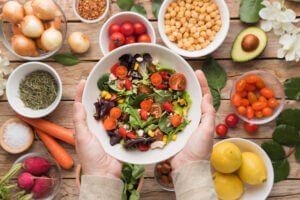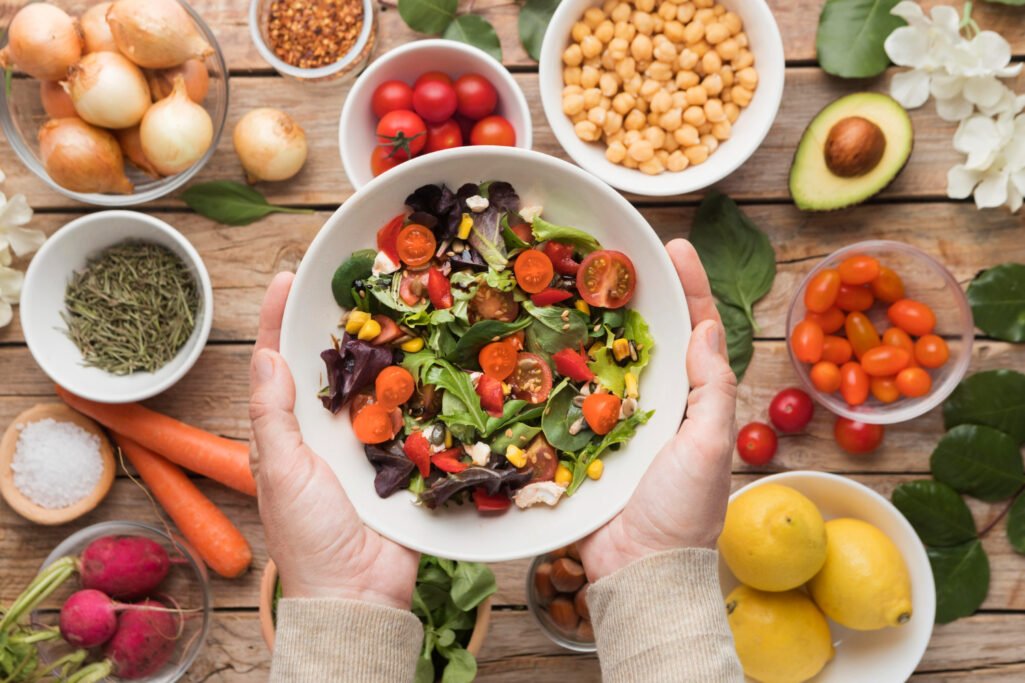Top food to prevent cancer in 2025/ Top 10 foods in 2025/ Top Anti-cancer diets/ Top 10 diets to follow in 2025
All we need to know are the top food to eat in 2025. These Top Food are to prevent cancer and are hence Anti-cancer. The food you consume plays a crucial role in maintaining your overall health and can significantly impact your risk of developing cancer. Research shows that a diet rich in fruits, vegetables, whole grains, and healthy fats can help lower the chances of cancer. Planning your diet carefully is essential to minimize this risk. Hence you need to take these Top diets to prevent cancer



Cancer occurs when cells in the body grow uncontrollably and form tumors. These abnormal cells may spread to other parts of the body, complicating the treatment process. Many factors, such as genetics, lifestyle choices, and environmental influences, contribute to the risk of developing cancer. Dr. Dinesh Singh, Chairman of Radiation Oncology at Andromeda Cancer Hospital, Sonipat, emphasizes the vital role of diet in cancer prevention. According to Dr. Singh, “Diet is one of the key factors in cancer formation, and by making informed food choices, we can reduce the risk.”
Here are the Top diet tips, approved by Dr. Singh, that can help fight cancer:
Top Foods to Include in Your Diet To prevent Cancer:
- Leafy Greens: Full of essential vitamins, minerals, and fiber, leafy greens like spinach, kale, and mustard greens are important for preventing cancer. Dr. Singh notes that these greens are high in antioxidants that boost the body’s defenses.
- Tomatoes: Rich in lycopene, an antioxidant, tomatoes are known to lower the risk of prostate cancer. They can be consumed fresh, in sauces, or roasted for maximum benefits.
- Berries: Berries, such as blueberries, strawberries, and raspberries, are packed with antioxidants that help reduce inflammation, which is associated with cancer development.
- Cruciferous Vegetables: Vegetables like broccoli, cauliflower, and cabbage contain sulforaphane, a compound known for its potent anti-cancer properties.
- Coarse Grains: Grains like millet, unpolished rice, and whole wheat flour are excellent sources of fiber and antioxidants that support cancer prevention.
- Legumes: Sprouted and cooked legumes like lentils, beans, and chickpeas provide fiber, protein, and other nutrients that support a healthy digestive system and lower cancer risk.
- Nuts and Seeds: Walnuts, almonds, flaxseeds, and chia seeds are full of healthy fats, fiber, and antioxidants that promote overall health and help reduce cancer risk.
Foods to Avoid to prevent risk of cancer:
- Processed Meats: Bacon, sausages, and hot dogs contain nitrates and nitrites, preservatives linked to an increased risk of colorectal cancer.
- Red Meat: Overconsumption of red meat, especially when grilled or charred, has been shown to increase the risk of colon and stomach cancers due to its high heme iron content.
- Sugary Drinks and Refined Sugars: Beverages like sodas and sweetened teas contribute to obesity, which in turn increases the risk of breast, colon, and pancreatic cancers.
- Alcohol: There is no safe level of alcohol consumption, according to the World Health Organization (WHO). Dr. Singh advises completely avoiding alcohol, as it is strongly linked to liver, breast, and mouth cancers.
- Fried and Processed Foods: These foods often contain acrylamide, a chemical associated with ovarian and breast cancers.
- Refined Grains: Foods like white bread and pastries have a high glycemic index, which can lead to blood sugar spikes and obesity—both risk factors for various cancers.
- Artificial Sweeteners: While their potential cancer risk is still debated, Dr. Singh suggests avoiding artificial sweeteners and opting for unsweetened foods and drinks instead.
Additional Cancer Prevention Tips:
- Maintain a Healthy Weight: Obesity increases the risk of several cancers, making it essential to eat a balanced diet and stay active.
- Limit Salt Intake: High sodium consumption is linked to stomach cancer. Reducing processed and salty foods can help lower this risk.
- Choose Seasonal and Local Foods: Fresh, locally-produced, and seasonal foods align with your body’s nutritional needs, offering maximum health benefits.
Disclaimer: This article provides general health and diet advice and should not be considered a substitute for professional medical consultation. Always consult with a specialist for personalized health guidance.

